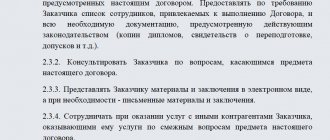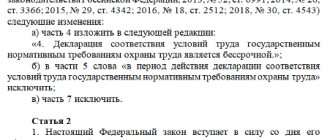Many participants in labor relations are not yet aware of such new relationships between the employer and the employee as outstaffing.
Dear readers! The article talks about typical ways to resolve legal issues, but each case is individual. If you want to find out how to solve your particular problem , contact a consultant:
8 (800) 700 95 53
APPLICATIONS AND CALLS ARE ACCEPTED 24/7 and 7 days a week.
It's fast and FREE !
This issue is especially relevant in conditions where the labor of foreign citizens is used. However, it is increasingly being implemented by business managers who are trying to save on the wages of working personnel in every possible way during a crisis.
Since 2021, additions have been made to the Labor Code of the Russian Federation regarding the use of outstaffing services by Russian employers.
What benefits and losses do organizations, on the one hand, and the employees they hire, on the other hand, interact with each other under the terms of such an agreement? Does outstaffing of foreign personnel have any distinctive features? Let's take a closer look at the answers to these questions.
Legal regulation of outstaffing for foreign citizens
In Russia, legal relations between enterprises and foreign citizens are regulated by Federal Law dated July 25, 2002 N 115-FZ “On the legal status of foreign citizens in the Russian Federation”
In accordance with Article 13 of the Law, the labor of foreign employees can be used only if certain requirements are met:
- the employer must obtain permission in accordance with the procedure established by law for a specific foreign citizen in order to use him as a foreign worker;
- a foreign worker must obtain a work permit from a specific employer in accordance with the established procedure;
- An employment or civil law contract must be concluded between the foreign worker and the employer.
Legislative regulation of outstaffing in the Russian Federation
In practice, outstaffing is understood as the provision by the employing company (contractor) of its personnel to perform work for another person (customer) who is not the employer for the workers. Employees perform their labor functions in the interests, under the control and on the territory of the customer . In the Russian Federation, instead of this term, the concept of services for temporary provision of personnel .
As a result, although according to Art. 56.1 of the Labor Code of the Russian Federation, agency work is prohibited; domestic legislation allows outstaffing of foreign citizens. But only if certain conditions (Chapter 53.1 of the Labor Code of the Russian Federation, Article 18.1 of the Law of the Russian Federation of April 19, 1991 No. 1032-1):
- The employer can be an accredited employment agency that does not use simplified tax regimes, or an organization affiliated with the customer or that has entered into a shareholder agreement .
- Workers can only be provided:
- for personal needs of individuals;
- to replace temporarily absent employee of the customer - for the period of maintaining his job (business trip, vacation, sick leave);
- to perform obviously temporary work lasting up to 9 months during the period of seasonal growth in production volumes.
It is also possible to use outstaffing for foreigners only if the executing company complies with all the requirements of migration legislation.
Find out more about the conditions and rules for outstaffing in our article “ Procedures and conditions for leasing (renting) personnel .”
The advantage of outstaffing foreign personnel for an enterprise
Circumstances when the labor of specialists is used through an intermediary company is beneficial to the production enterprise and the outstaffer. Since now the official employer according to the worker’s papers is the outstaffing company, which has registered him on its staff under an employment contract, then it performs the duties of a personnel officer and payment of wages in relation to hired workers.
Outstaffing activities include the following activities:
- maintaining personnel records;
- registration of documentation on work books and personal files;
- payment of taxes and contributions from wages;
- resolves issues of workers in interaction with government agencies, etc.;
- pays wages, according to certificates of incapacity for work, vacations, etc.;
- takes upon itself the resolution of issues in violation of labor, migration or tax laws.
It is especially beneficial for employing companies to resort to outstaffing of foreign citizens. It is no secret that the labor of unskilled foreign labor is paid approximately 30% lower than that of Russians. A very important circumstance is the release of the customer company from solving numerous problems associated with the employment of foreign citizens. Otherwise, a huge (up to 800 thousand rubles) fine from the Federal Migration Service for violations when hiring foreigners can reduce the benefits of attracting them to zero.
Auststaffing manufacturing enterprise helps to save time and money on labor resources. The company pays only the fixed amount specified in the contract with the outstaffing company.
Moreover, if an employee is sick or on vacation, the intermediary company replaces him with another specialist during his absence.
Production is freed from a number of tasks, namely:
- from resolving issues of dismissal and staff reduction, if necessary.
- From compensation for staff reduction
- From resolving controversial issues that arise in the process of labor relations.
What if we transfer migrants outside the state to outstaffing?
Outstaffing is a personnel solution that allows employers to remove their employees from the organization’s staff or hire new ones without registering them on their staff.
In other words, outstaffing is the use of the labor of freelance workers, that is, workers employed by another company.
To do this, the customer-employer turns to an outstaffing private employment agency, which concludes employment contracts with employees, re-registers them as its staff, and after the employees are officially employed in its organization, the agency transfers them to the client’s company under a personnel supply agreement.
Thus, the customer receives legalized personnel working legally on its territory and under its direct supervision without registration in its staff.
And since the employment agency is the official employer of transferred employees, it completely takes upon itself the maintenance of personnel, tax, accounting and migration records of foreign employees.
That is, the employer simply uses foreign labor, and the outstaffing agency independently deals with the tedious procedure of registering foreign citizens, conducts a migration check of their documents, submits a notification to the migration service about concluding labor relations with foreign workers, renews registrations of foreigners at the place of work and carefully monitors deadlines validity and renewal of their documents.
Moreover, if the customer’s organization removes foreign workers from the workforce, it is freed not only from all the difficulties of registering and maintaining them, but also from all legal liability of the employer of migrants to government services.
That is, if government agencies come to the customer with an inspection, it will be enough for him to simply provide an outstaffing agreement, and all questions will be automatically forwarded to the agency, since it is the official employer of the transferred personnel. And even if the inspection services still manage to find any errors in the records of workers or in their documents, the fine for migrants will still be imposed exclusively on the official employer - the outstaffing agency.
Thus, by reregistering employees as outstaffers, the customer frees himself not only from the tedious paperwork of migrants, but also from the close attention of government services, the responsibilities and functions of the employer, and also 100% protects himself from all kinds of fines and personnel risks.
The advantage of outstaffing foreign personnel for an employee
This type of labor relationship is the most disadvantageous for workers for many reasons:
- the employee is deprived of certain benefits and privileges;
- there is no payment for hazardous working conditions;
- it is impossible to build a career;
- the level of wages is greatly reduced;
- has difficulty proving that he worked in a prestigious institution due to the lack of entry in the work book or other similar documents;
- there is an opportunity to get to an illegal outstaffer who will not pay taxes to budget funds.
Specialists need to know what they are risking when formalizing an employment relationship with an outstaffer.
It is especially important to pay attention to the legality of a given company before applying for a job.
What risks may there be when outstaffing staff?
If you have decided to hire staff through an intermediary, the first thing you should probably pay attention to is the intermediary himself. By law, only an organization accredited in a special register can provide such services. If it is not there, this entire scheme will be considered illegal by the controlling structures, with all the ensuing consequences.
It would be a good idea to search and read reviews on the Internet about the companies you are planning to contact.
It is also worth requesting from the selected organization data indicating that employment contracts have been concluded with the employees provided. Otherwise, when checking, these employees will be considered to be working under an employment contract with you, and you will be charged for failure to formalize and maintain personnel documentation.
Further, if these are foreign workers, they must have the appropriate documents. These could be:
- work permit in Russia;
- resident card;
- temporary residence permit;
- migration card;
- visa;
- patent and so on.
It all depends on the status of stay of a foreign citizen in Russia.
If they suddenly don’t have the necessary documents, you will have to answer. Moreover, we recently wrote that even if you have documents, it may turn out that they were issued illegally and the employer will still have to answer.
Another risk is that if the outstaffing company, after concluding an agreement and receiving money from the employer, simply neglected to maintain personnel records, pay taxes, and submit reports on the employees provided, the person who acted as the outstaffing company’s client will most likely also have to answer.
At the very least, the inspectors will get on his nerves pretty much.
Requirements for outstaffing of foreign citizens
Outstaffing can be provided by the following companies:
| Private employment agencies | It is allowed to enter into contracts with foreign citizens only if there is appropriate accreditation from the employment service. |
| Affiliated legal entities | They can send employees to perform production duties to their affiliate - a member of the shareholder agreement. |
When using the labor of foreign citizens through an outstaffing company, an enterprise can enter into an agreement only when the following conditions are met:
- The period of work should not exceed 9 months;
- The number of foreign citizens should not exceed 10% of the total number of employees;
- It is imperative to compensate for harmfulness if they work in harmful conditions;
- The main subject of the contract should be the provision of services with the involvement of the forces and human resources of recruitment agencies that have foreign citizens on their staff.
Outsourcing to a foreign citizen
Outsourcing is understood as the transfer by the customer company of any business function/work/element of a business process to be performed by a third party. In this case, the customer receives a finished result for the work he requires and does not organize it. In this case, an agreement for the provision of outsourcing services is concluded between the parties.
In turn, the contractor hires the appropriate personnel and organizes the process of performing the work - as a rule, on its territory, under its management and control.
At the same time, this type of activity is not prohibited , it is absolutely legal and allows, among other things, the outsourcing of foreign workers.
There is a lot more interesting and useful information about outsourcing in our material “ What is outsourcing ”.
Requirements for an outstaffing company
Companies providing outstaffing services must, first of all, meet the requirements of the law:
- the authorized capital cannot be less than 1 million rubles;
- no debts to pay taxes and fees to the budget;
- the head of the company must have a higher education;
- The manager’s experience in matters of employment of working personnel must be at least 2 calendar years within the last 3 years;
- the head of the company must not have a criminal record for a crime against citizens or illegal fraud in the economic sphere;
- Only the general taxation system is used.
Outsourcing of migration registration
Today, a service such as migration accounting outsourcing has appeared on the market. Outsourcing is the transfer of non-core company functions to employees of a third-party organization.
That is, outsourcing of migration registration assumes that the employer transfers to the employees of another company the maintenance of migration records of its foreign workers.
And it turns out that employees of a third-party organization maintain migration records of the employer’s employees: prepare and check migrants’ documents, fill out registration forms, wait in line at government agencies to submit documents, collect registrations, transfer them to the employer’s personnel service, monitor the renewal of registrations and timely payment for patents.
Of course, it may seem that outsourcing of migration registration is very beneficial for employers of foreign citizens, since there is no need to employ personnel specialists with experience in the field of migration, migration lawyers and couriers, nor to spend money on additional training of full-time personnel workers or on specialized software for migration registration.
However, are you ready to sacrifice the security of your company?
The risks and responsibilities when outsourcing migration registration of foreign workers will lie with your company. Since you are the official employer of foreign citizens, and they work for you under an employment contract, you bear full legal responsibility for migrants.
Therefore, you will also have to pay for the slightest mistake or human factor.
Let us remind you that the fines for migrants are very serious: for an error in the documents of each foreign worker, the employer will pay a fine of up to 1,000,000 rubles. Just imagine how much you will have to pay for a team of 10 people who simply by chance did not have time to register for migration!
FAQ
Question No. 1 Who is responsible for the transferred personnel?
Answer: Responsibility for the transferred personnel lies with the outstaffer. But there is one exception: if an accident occurs at work with a transferred employee, the customer company is responsible for forming a commission of investigation. It must include the head of the receiving party, as well as a representative of the outstaffer.
Question No. 2 Is it legal to retire personnel from January 1, 2021? How is this regulated?
Answer: The removal of personnel from staff is completely legal.
This process is regulated by Chapter 53.1 of the Labor Code of the Russian Federation. It identifies the subjects of outstaffing, as well as their rights and obligations after signing the relevant agreement. Rate the quality of the article. Your opinion is important to us:
What companies need outstaffing?
Outstaffing is very convenient for employers who hire migrants. The fact is that migration legislation is quite strict: you need to properly register an employee, submit a notification to the migration authorities, monitor the timely payment of patents and the renewal of migration registration. There are many nuances, and fines even for minor violations reach up to one million rubles.
Outstaffing of personnel allows the company to completely relieve itself of responsibility for possible non-compliance with migration legislation. The company retains its employees, but personnel issues fall on the shoulders of the provider company.
“We, as the official employer of your employees, exclude the very possibility of risks associated with the prescribed fines, which reach up to 1,000,000 rubles for one illegal employee. Due to the nature of their activities, our employees visit the migration authorities of the Ministry of Internal Affairs every day, we vigilantly monitor changes in migration legislation, so we are the first to learn and put into practice various innovations,”
— told in “LEADER GROUP”
HOW DO WE RECRUIT FOREIGN STAFF AND WHAT DO WE OFFER?
There are many agencies on the market that recruit foreigners, but not all provide these services at a high level. We are radically different from such companies! Because We have been present in the foreign personnel recruitment market for more than seven years. Working with foreigners is our specialization; this allows us to have highly qualified specialists working only in this direction.
Contact our organization for the recruitment service from among foreigners and get a high-quality selection of migrant workers at any level. At the same time, we provide assistance in obtaining permits, which must be completed for official employment of migrant workers in the Russian Federation. We guarantee completeness and correctness of registration.
Foreign outsourced workers
“Personnel officer. Recruiting for personnel officers", 2012, N 3
FOREIGN OUTSOURCING WORKERS
The article is devoted to the advantages and problems of hiring foreign workers with the help of recruitment agencies. Understands which issues are resolved by recruitment agencies and which are left to their clients, as well as who is considered the employer of these workers.
Need for foreign workers
Decree of the Government of the Russian Federation dated November 12, 2010 N 895 “On determining the need for attracting foreign workers to the Russian Federation and approving the corresponding quotas for 2011” determined the need and readiness of Russia to accept 1,745,584 foreign workers in 2011 (for comparison: in 2010 . - 1 944 356).
Foreign workers are divided into professional and qualification groups. As in 2010, the maximum requirement was established for mining, mining capital, construction and installation and repair work (531,514 people). The need for managers is 109,590 people, and for unskilled workers - 388,615.
The quota for specialists in the field of natural and engineering sciences is 29,761 people, in the field of financial, economic, administrative and social activities - 25,304. There is a need for sellers, demonstrators of goods and clothing, sitters (a total of 10,928 foreigners), as well as drivers and mobile equipment operators (98,699).
1/5 of the attracted foreign labor force is made up of unskilled workers - 388,615 people, while Russian managers compete with only 109,590 foreign managers, which is 1/15 of the attracted foreign labor force.
The need for labor for the next year is formed only on the basis of applications from employers to Employment Centers; from March 14, 2011 in St. Petersburg, applications are accepted by the Committee on Labor and Employment of the Population of St. Petersburg.
The quota data, in my opinion, does not reflect the current need for foreign personnel, since there remain employers who do not plan to legally register their employees. Migrants come to large cities in Russia, hoping to find a job in construction or in trade, save on obtaining work permits, live in slum conditions and work illegally, bypassing the quota.
Employers interested in foreign labor formulate needs in advance, thereby reserving available jobs for foreign workers, without offering Russian job seekers. This trend has developed, they believe, due to the lack of national personnel ready to earn money, work intensively, without violating labor discipline by drinking and absenteeism. So, they start work, after about a week the employer finds out that the employee suffers from alcohol addiction or does not want to do menial work, registers with the labor exchange, through which he can receive benefits of up to 5,000 rubles. per month without working. Employers are often faced with the fact that workers who came on the recommendation of employment centers do not want to work and persuade the potential employer who needs workers to write a refusal in order to receive benefits. Non-working national personnel, compared to foreign ones, when hired, generally perform the required amount of work worse, demanding higher wages than established in the company’s staffing table. When comparing the work performed by three Russian citizens and two foreign citizens, it turns out that the latter completed many times more and of better quality.
Many Russian job seekers are interested in a fixed working day without overtime, average market wages, regardless of the amount of work, social guarantees such as voluntary health insurance, sick leave, 28-day vacations, and free training. Foreign workers for the most part do not consider these benefits, since it is in their interests to work out the year required by their work permit, receive vacation pay and go home. Foreign workers are rarely seen absent from work due to illness or alcohol intoxication. Often, after comparing the costs, output, salary and taxes paid of a foreign worker and a Russian worker, employers decide to hire a foreign worker.
Difficulties in hiring yourself
If the employer himself is engaged in hiring foreign workers, he is faced with problems of search, paperwork, employment contracts, insurance, and liability.
After making a decision to hire a foreign worker, the employer is required to obtain a quota for attracting foreign labor. In case of absence, this employer can attract foreigners who already have a work permit in the territory of the entity in which the employer is registered.
The employer is often faced with problems of bureaucracy and disorganization of the Federal Migration Service, long processing times for work permits, sometimes reaching 21 working days. Foreign labor is on forced leave for 21 days, since it is prohibited to begin work without a work permit. Employers will face huge fines for hiring people without a work permit.
Difficulties arise in obtaining quotas for unskilled labor. The quota is sometimes allocated in a smaller amount than expected by the employer.
It is impossible not to mention the difficulties of obtaining a work permit from an applicant: these are fixed reception hours of the migration service only 3 times a week, huge multi-day queues for submitting documents.
The employer also faces long queues at the migration service and OVIR in order to submit a notice and receive a mark on the hiring and dismissal of a foreign worker. Of course, there is an alternative to sending such a notification by mail, but the cost of each letter is 180 rubles. It is necessary to send three such letters within 3 days.
There are inconsistencies in the legislation related to the implementation of the instructions of the law in terms of labor and migration law. For example, a potential employee must submit his employment contract with the employer to the migration service. At the time of concluding an employment contract, only 2 copies are possible.
Communication difficulties associated with foreigners’ ignorance of the Russian language also arise quite often. Therefore, recruitment agencies are trying to solve this problem, for example, by independently publishing phrase books for foreigners.
What does a recruitment agency undertake?
Outsourcing of foreign labor removes many problematic issues from the employer. Employers, faced with the local mentality, prefer to hire a foreigner who is unpretentious and willing to work for little money. The task of a recruitment agency is to strictly fulfill the employer’s conditions regarding the selection of foreign personnel. Strict adherence to the ratio of work performed and remuneration for work, taking into account that “it is easier to negotiate with migrants, but with a more favorable offer, migrants leave their previous place of work.”
The search for foreign workers is left to recruitment agencies. Agencies carefully check applicants' documents with the help of the migration service and OVIR to identify fake work permits, fake migration cards, and registrations. From the practice of 2010: out of 10 foreign applicants who came to get a job, 6 had fake work permits, three had fake migration cards. And only one could be registered legally. It turns out that there are people who issue fake work permits for little money, deceiving foreign citizens. The same companies produce fake migration cards and registrations.
We believe that it is necessary to conclude an open-ended employment contract with a newly hired migrant, since the Labor Code of the Russian Federation makes no mention of concluding fixed-term contracts with migrants. Many lawyers dispute this position. This issue is constantly discussed on forums and online communities. After completing the documents necessary for admission, the employer is obliged to notify the migration service and the employment center within 3 days about the admission of the migrant. The employer has 10 days to notify the tax authority at the place of registration of the legal entity. Many employers insure workers from visa-free countries against accidents. Since 2011, the Unified Document Center in St. Petersburg has been cooperating with insurance companies that issue mini-policies for migrants with a guarantee of emergency medical care, emergency hospital care and repatriation services. Foreign workers have the opportunity to seek medical care. Now they, like Russian citizens, have the right to choose their own insurance company, clinic and attending physician; the employer is only responsible for paying insurance premiums.
Example. From the practice of mass selection in the Republic of Yakutia:
At the request of the employer, unqualified personnel were selected. The employer offered free accommodation in a hostel, payment for meals, a 2/2 schedule and partial reimbursement of the flight. Remuneration for labor was offered slightly lower than the average salary in the region.
We started the project with a request to the local employment center to find out the situation on the labor market. The request showed that the employer (our client) had been placing recruitment requests for six months. Candidates were referred through the employment center. Upon detailed examination of the customer’s company’s personnel documentation, it turned out that the candidates sent from the employment center did not work for more than 1–2 months.
In agreement with the customer, the selection of personnel from the visa-free Republic of Uzbekistan was organized. Agreements with representatives of the Uzbek diaspora helped organize the flight of foreigners to their place of work. Upon check-in to the hostel, foreigners were registered at their place of stay and were provided with assistance in preparing documents for obtaining a work permit in the region with the help of a partner company. All terms of the contract were fulfilled. After a couple of months, difficulties arose regarding the attitude of the local population towards foreigners. After the end of their stay in Russia (1 year from the date of entry), almost all selected candidates did not return to this employer again. After interviewing resigning employees, we came to the conclusion that the reasons for their refusal to work were distance from their main place of residence, climatic conditions and a tense situation with the local population. After analyzing the project, we came to the conclusion that it is much easier to attract workers from the visa country China, since the Chinese population is more adapted to the climate in Yakutia, because the Republic of Sakha is in close proximity, and many Chinese visit the territory of Yakutia for personal and commercial purposes. The bus service is well organized, it is possible to leave Russia more often.
Features of concluding contracts
Let us first consider the features of concluding an agreement with an organization for the provision of personnel.
The recruitment agency is obliged by contract to provide a replacement for the resigned employee within a short period of time, under guarantee. The recruitment agency is obliged to ensure that the employer is aware of the possibility of negative attitudes of other employees towards migrants and the associated psychological difficulties of foreign citizens.
What are the specifics of concluding a contract between a foreign worker and a recruitment agency as an employer? Registration takes place under an employment contract; special features arise in terms of familiarization with labor protection on the territory of the facility where the foreign worker performs work.
If claims arise from customers of work in connection with the activities of a foreign worker, then the recruitment agency risks lost profits. Every month, the customer of the work signs a certificate of completion by the employee of the scope of work.
O. Ivanova
Expert
Signed for seal
14.02.2012









